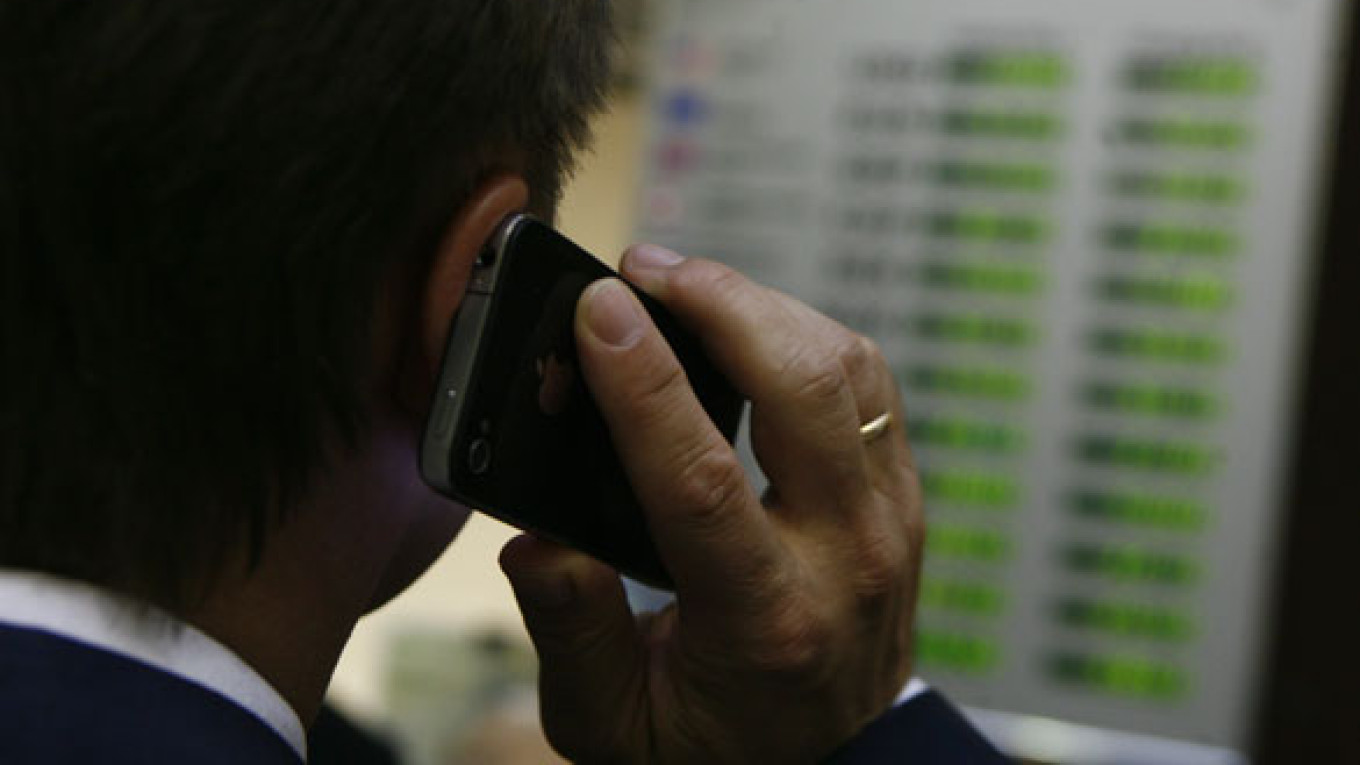The Central Bank has begun large-scale intervention in currency markets as steadily slumping oil prices stoked the plunge of the ruble to levels not seen in three years.
The currency closed at 33.68 per dollar Friday, down 0.6 percent. That exchange rate was the lowest since 2009, and Friday was the eighth consecutive day the ruble fell.
“We are conducting quite intensive intervention, and we are selling currency,” said Sergei Ignatyev, head of the Central Bank, RIA-Novosti reported.?
The ruble’s decline in recent days has pushed it to the upper limit of the Central Bank’s floating corridor, 32.15 to 38.15 against the euro-dollar currency basket. Proximity to the 38.15 point was the reason behind the decision to act, he said.
The Western benchmark, Brent crude oil, dropped below the $100 a barrel mark Friday for the first time in seven months. Urals crude, the Russian benchmark, was also down.
“Currency traders capitulated in the face of weakening oil,” Troika Dialog chief strategist Chris Weafer wrote in a note Friday. Weafer warned of the dangers of a “currency panic.”
But the Central Bank said the market will stabilize.
“If the price of oil continues to fall, then it is possible that the ruble will continue to weaken but at a slower tempo than recently, because we are now actively intervening,” Ignatyev said.
Russian stock exchanges reflected declines in international markets. Purchasing managers’ indexes released Friday across Europe and data indicating a rise in U.S. unemployment painted a particularly gloomy picture.
In response to those numbers, the MICEX Index dropped 0.6 percent Friday to 1,298.08. The RTS Index closed down 1.2 percent at 1,227.65.
Ignatyev said Europe was to blame for the problems on Russia’s markets.
Big currency moves are nothing to worry about, Sberbank president German Gref said in an interview with Komsomolskaya Pravda published Friday.
“The devaluation of the 1990s frightened the population so much that every time we hear this rhetoric [about a weakening ruble] we flinch and run for our money,” Gref said. “It’s just a current part of financial culture that we have to vaccinate people against.”
Some of the recent declines in the ruble’s value have been exacerbated by the Central Bank’s new approach, which is designed to allow a freer float and keep interventions to a minimum, said Vladimir Tikhonov, chief economist at Otkritie Capital.
“The market has yet to get used to this policy,” he said.
Though plunging markets and a weakening ruble were a sign of gathering storm clouds for some, for others the news was only good.
“The combination of an extremely weak local currency and relatively strong oil prices, if sustained, is set to significantly support Russian oil companies’ profitability,” VTB Capital said in a research note Friday. “[They] are now enjoying the most favorable macro environment ever.”?
A Message from The Moscow Times:
Dear readers,
We are facing unprecedented challenges. Russia's Prosecutor General's Office has designated The Moscow Times as an "undesirable" organization, criminalizing our work and putting our staff at risk of prosecution. This follows our earlier unjust labeling as a "foreign agent."
These actions are direct attempts to silence independent journalism in Russia. The authorities claim our work "discredits the decisions of the Russian leadership." We see things differently: we strive to provide accurate, unbiased reporting on Russia.
We, the journalists of The Moscow Times, refuse to be silenced. But to continue our work, we need your help.
Your support, no matter how small, makes a world of difference. If you can, please support us monthly starting from just $2. It's quick to set up, and every contribution makes a significant impact.
By supporting The Moscow Times, you're defending open, independent journalism in the face of repression. Thank you for standing with us.
Remind me later.


